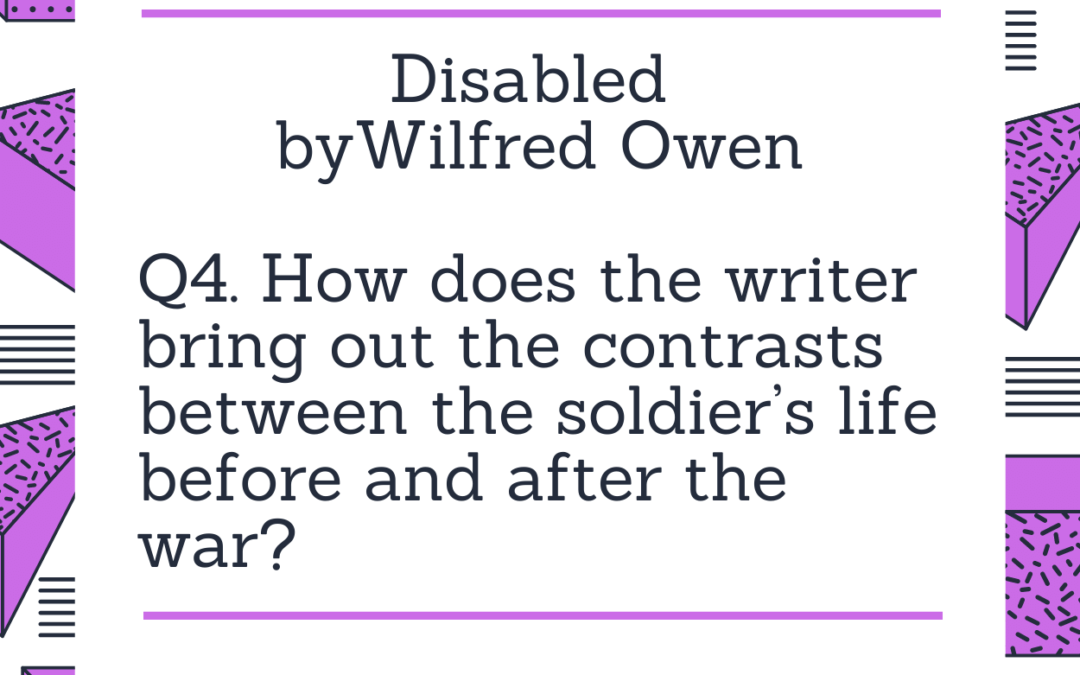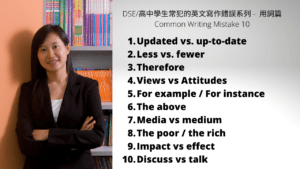Edexcel English IGCSE: Disabled by Wilfred Owen
Q4. How does the writer bring out the contrasts between the soldier’s life before and after the war?
In your answer, you should consider:
- the soldier’s current situation;
- the soldier’s life before the war;
- any interesting use of language.
You should refer closely to the poem to support your answer. You may use brief quotations.
Edexcel English IGCSE Model Essay by an Expert
Wilfred Owen uses contrasts between the soldier’s life before and after the war to show the terrible effects of the war: in the soldier’s appearance, his experience of women, and his future prospects.
Now that he has lost his arms and legs, the soldier reflects on his strength and youthful appearance before his injury in the war. One stark contrast is that between his previous youth and how old he now feels and looks. Before, his face was “younger than his youth”, showing that he looked even younger than his age. The repetition of words denoting youth creates an even stronger contrast with the short, bitter statement on the following line: “Now, he is old”. Previously a football player, the soldier is now in contrast with the “strong men that were whole”. This shows that he considers himself to be broken, or to be only part of a man.
Owen highlights the changes since the war through the soldier’s relationships with women. Before the war, he had a girlfriend called “Meg”: one of his motivations for joining the army. Ironically, although he joined the army to impress a girl, his experience in the war now makes him repulsive to women. There is sensual longing in the description of “how slim girls’ waists are” and “how warm their subtle hands”, as the soldier remembers how women used to act. Now, however, they “touch him like some queer disease”. This medicalised simile suggests that women are disgusted by him, as if his injury could be somehow contagious. It also implies that the only women who touch him now are nurses, who treat men as medical subjects, rather than sexual beings.
One poignant contrast between his past and present situation is the soldier’s sense of his future. Before the war, the soldier did not give much thought to his future, as evidenced by his flippant reasons for going to war. Now, however, he has no real control over his life, and he must be the passive receiver of help and pity: “Now, he will spend a few sick years in Institutes”. Throughout the poem, the word “now” acts as a frequent reminder of the contrasts between the past and the present, bringing the soldier from his memories of the past back to his current misery. Owen provides a direct contrast between the way that “crowds cheered Goal” when he used to play football, and how some people “cheered him home”. Whilst he used to be praised and celebrated, now he is an embarrassment: an object for pity and charity rather than admiration.
The disabled soldier’s injury clearly ruins his life. He has now lost his health and youth, and the prospect of an independent life with a wife and family.



